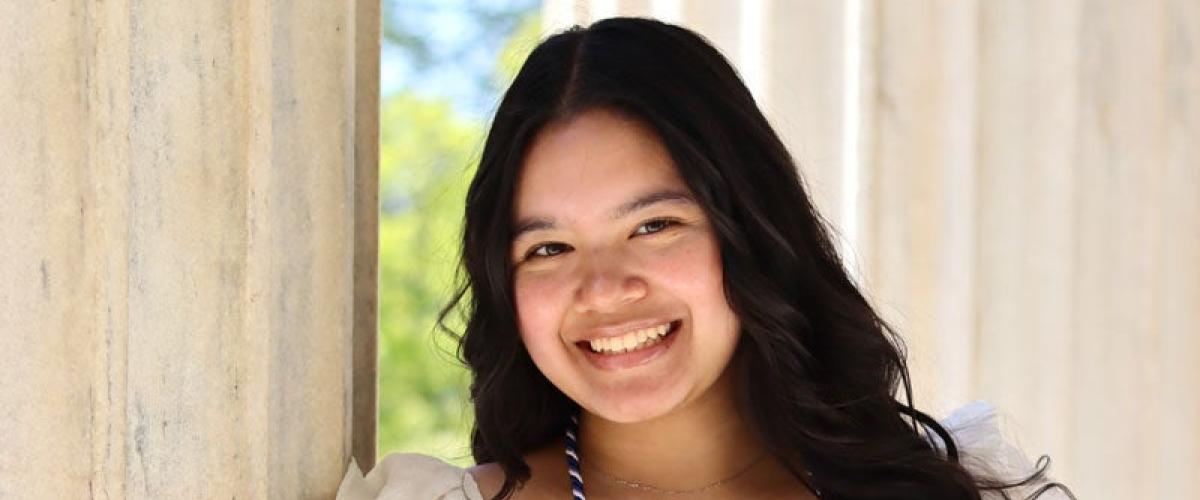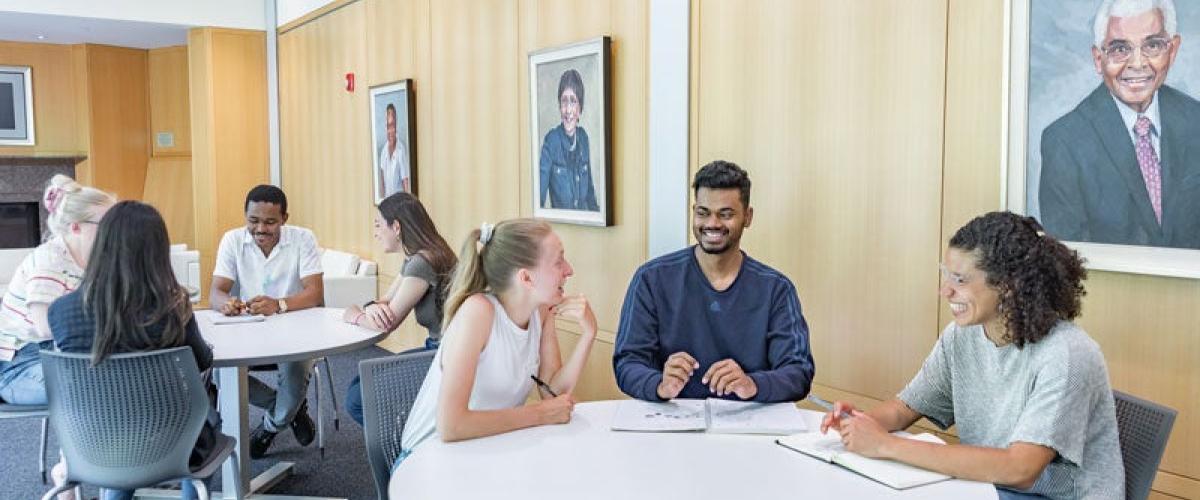From studying social work, geological sciences, and neuroscience, to pursuing optometry, to working at the law school, those of Filipino heritage are engaged with countless facets of the university.
In recognition of Filipino American History Month, which takes place each year in October, The Daily is celebrating the accomplishments and experiences of four of those Filipino members of the CWRU community. Discover more about their experiences at Case Western Reserve—and learn how their heritage has impacted their lives.
Answers have been lightly edited for clarity and length.
Eddie Encarnacion
Master of Social Work student
Eddie Encarnacion grew up in a large Filipino community in Toledo, Ohio, where cultural traditions and family played a central role in their life. From sharing meals to participating in community events, these experiences fostered a strong sense of belonging and shaped Encarnacion’s understanding of the importance of support and connection among people.
“Being exposed to American culture at school while growing up with Filipino culture at home was difficult at times,” Encarnacion said, “but something that helped strengthen my connection to my Filipino culture is the big community we had surrounding us.”
To Encarnacion, this month is a reminder to appreciate the sacrifices that their parents, grandparents and relatives made for them, their siblings, their cousins and those who come after them.
“It is a reminder to embrace the uniqueness that comes with being Filipino American,” Encarnacion said. “It is a reminder to be proud of what we have accomplished and how diverse we are, and to stay strong for what needs to be accomplished. Filipino American History Month is a celebration of strength and resilience.”
1. What are some important aspects about your culture?
The center of most Filipinos’ social life is their family, and Filipinos are also very artistic and creative. Food is one of the most important ways we show our love and care to others. When a guest walks into our house, one of the first things we offer is food. When a guest leaves the house, most likely, we offer food for them to bring home. I am blessed to have Filipino recipes passed down by my elders.
2. Why did you choose to study social work?
“Children are our world’s most vulnerable population, but they are also our future leaders.” That’s what I always tell people when I am asked why I chose social work. It summarizes all of the moments that have led my heart to social work and why I am passionate about it. There were multiple defining moments that shaped me and contributed to my decision to pursue social work—people I’ve met, their stories, and my story. One of the moments I had that had fully committed me to social work was knowing that my heart would not be satisfied if I had pursued any other profession. I want to provide a safe and loving environment—a home—for those who do not feel safe or loved in their home, and I know that when time passes, these children will be leading our country.
3. What do you think the campus community should know about Filipino heritage in general?
The Philippines is a low-income country, yet there are many generally happy Filipinos. How can a country that has so little feel blessed by so much? They are resourceful. They make something out of nothing, both in their basic needs and in life-fulfilling experiences. And when us Filipinos are passionate about something, we try to put our entire hearts into it.
Read about the other three Filipino members of the CWRU community.




